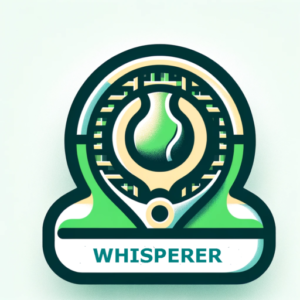The Science Behind Why We Play Not to Lose
The Science Behind Why We Play Not to Lose
Something odd happens in competitive tennis matches. Even experienced players—those who have drilled for years and won countless points with bold play—suddenly change. They stop playing to win and start playing not to lose. It’s easy to assume this is just nerves, but there’s more to it. There’s science behind that shift.
When the pressure builds, the human brain instinctively seeks out what feels certain, safe, and simple. We back away from risk not because it’s the wrong play, but because our brains are overloaded and looking for shortcuts. The bold strategy that felt automatic in practice suddenly seems too complex to trust.
In those moments, it’s not just your forehand that’s under stress. It’s your mental wiring.
The Oprea Study: Why Simplicity Feels Safer
Economist Ryan Oprea of UC Santa Barbara explored this exact phenomenon in a 2024 study. He presented participants with two types of choices:
-
One involved a classic risk scenario: choosing between a guaranteed reward or a riskier, potentially higher payout.
-
The other involved no risk at all—just a little math. Participants had to compare two guaranteed outcomes, but one was more mentally demanding.
Here’s the kicker: people avoided the complex choice just as often as they avoided the risky one, even though there was no uncertainty involved. The conclusion was clear:
The brain treats complexity the same way it treats risk.
Citation: Oprea, Ryan. 2024. “Decisions under Risk Are Decisions under Complexity.” American Economic Review 114 (12): 3789–3811. DOI: 10.1257/aer.20221227
Why This Matters on the Court
In tennis, complexity is strategy.
It shows up when you change direction mid-rally, go after a tough serve target, or take control on a tight point. These are high-payoff plays—but they also require fast, deliberate thinking.
When pressure hits, your brain wants to simplify. So instead of attacking the second serve, you block it back. Instead of aiming to the corner, you hit down the middle.
You don’t lose confidence—you lose bandwidth. And with it, your ability to make good strategic choices in the moment.
The Weekend Warrior Factor
This is especially true for the majority of players—those who balance tennis with jobs, families, and everyday life. If you’ve spent your week in meetings, solving problems, and making decisions, your brain is already fatigued.
By the time Saturday rolls around, your cognitive tank is half-empty. When the score tightens, you’re not unprepared—you’re just mentally spent. And that’s when the brain looks for the easiest option.
It’s not poor preparation. It’s human nature.
Training to Think Clearly Under Pressure
James Clear, in Atomic Habits, explains that we default to what we’ve repeated most often—especially when we’re under stress. The goal isn’t to fight your instincts, but to train better ones.
Here’s how:
-
Automate your decisions. Practice your go-to plays until they’re second nature.
-
Simulate pressure. Train with tiebreakers, sudden-death points, or start games at 30–40.
-
Use calming rituals. Breathing techniques, routines between points, or even the left-hand tennis ball squeeze can help reduce mental clutter.
-
Redefine what feels safe. Safe should mean familiar and practiced, not tentative or defensive.
Match Day Mindfulness
Arrive early. Get away from the noise. Give your mind space to reset.
Back when I played, I’d spend 20–30 quiet minutes in the locker room before a match—no hype, no distractions. Just quiet.
Today, many players walk onto court with headphones on. It’s not just a playlist—it’s protection. A way to create mental boundaries and preserve focus.
Stillness sharpens clarity. And clarity gives you the best shot under pressure.
The Real Opponent? Cognitive Overload
When the match tightens, most players don’t choke because they’re afraid to lose. They choke because their brain is exhausted—and simplifying feels like the only option.
But the best competitors train themselves to stay strategic when others retreat. Not because they’re fearless. But because they’ve rehearsed complexity until it feels familiar.
Wrap
If you want to play to win under pressure, don’t just train your shots—train your brain. Learn to embrace complexity, even when it feels uncomfortable.
Because the science says: you can!



